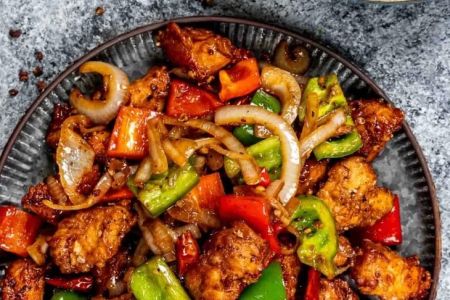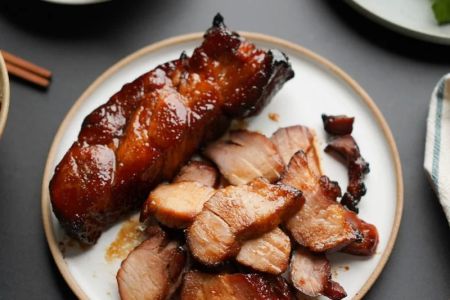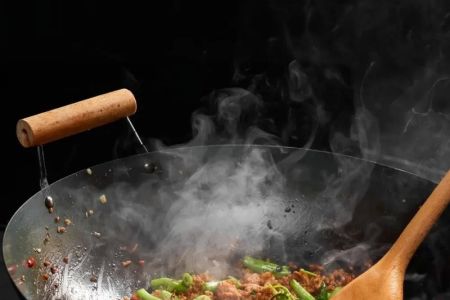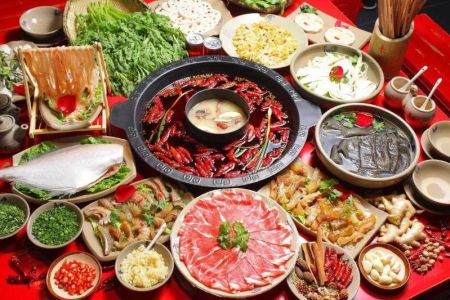Which Food Additive is Often Blamed for Chinese Restaurant Syndrome?
Have you ever felt strange symptoms after enjoying a delicious Chinese meal? Maybe a slight headache, sweating, or even a feeling of tightness in your chest? If so, you’re not alone. Many people have experienced these symptoms, which have been linked to what is commonly known as “Chinese Restaurant Syndrome” (CRS). While some individuals chalk it up to coincidence, others strongly believe that a specific food additive is responsible for this unpleasant condition. But what is this mysterious ingredient, and is it really the culprit? Let’s dive in and explore.
1. What is Chinese Restaurant Syndrome?
Before we can understand which food additive is blamed for Chinese Restaurant Syndrome, we need to grasp the symptoms and how this condition became widely discussed. The term “Chinese Restaurant Syndrome” was coined in 1968 after a letter was published in the New England Journal of Medicine. A physician, Dr. Robert Ho Man Kwok, complained of experiencing symptoms like chest pain, sweating, and numbness after eating Chinese food. He linked the symptoms to the consumption of Chinese dishes, specifically those that contained monosodium glutamate (MSG).
Over the years, others reported similar reactions, leading to widespread attention and concern about the effects of certain food additives used in Chinese cooking. However, the symptoms weren't exclusive to Chinese restaurants, nor were they always linked to MSG. This discrepancy has fueled debates about whether MSG was truly the cause of CRS or if there was another factor at play.
1.1 The Symptoms of Chinese Restaurant Syndrome
People who experience CRS often describe symptoms like headaches, facial pressure or tightness, sweating, chest pain, and a feeling of numbness or weakness. These symptoms can appear within 15 to 30 minutes of eating a meal, and in some cases, they can last for up to an hour or more. Although the symptoms are typically mild, they can be alarming, especially for those who experience them for the first time.
2. What is MSG, and Why Is It Associated with CRS?
The food additive that has long been blamed for Chinese Restaurant Syndrome is monosodium glutamate, commonly referred to as MSG. MSG is a flavor enhancer that has been used in cooking for over a century, especially in Asian cuisines. It’s a naturally occurring substance found in foods like tomatoes and cheese, but it’s most often recognized as a synthetic additive added to processed foods to boost savory flavors.
2.1 How Does MSG Work?
MSG works by intensifying the umami flavor of foods, which is one of the five basic tastes alongside sweet, salty, bitter, and sour. When MSG is added to a dish, it enhances the taste and makes the food more flavorful, which is why it’s a popular ingredient in many savory dishes, including soups, sauces, and of course, Chinese food.
2.2 The Debate Over MSG and CRS
Despite the widespread association of MSG with Chinese Restaurant Syndrome, research on the additive’s potential harmful effects is conflicting. While many people claim to have experienced symptoms after consuming MSG, scientific studies have not conclusively shown that MSG is the sole cause of these reactions. In fact, the U.S. Food and Drug Administration (FDA) classifies MSG as a food ingredient that is “generally recognized as safe” (GRAS).
3. Is There Evidence to Support the Link Between MSG and CRS?
The evidence supporting the link between MSG and Chinese Restaurant Syndrome remains inconclusive. Some studies suggest that people who are sensitive to MSG may experience mild symptoms after eating foods containing the additive, but these cases are rare. Research has also shown that the vast majority of people can consume MSG without any adverse effects.
3.1 Sensitivity to MSG
There is a small group of individuals who report heightened sensitivity to MSG. This condition is sometimes referred to as “MSG symptom complex,” and it’s characterized by the same symptoms attributed to CRS, including headaches and sweating. However, it’s important to note that the exact cause of these reactions is still not fully understood, and many health experts believe that these individuals may be reacting to MSG in combination with other factors, such as food allergies or intolerances.
3.2 The Role of Other Ingredients
While MSG often takes the blame for Chinese Restaurant Syndrome, it’s important to consider other factors that might contribute to the symptoms. For example, many Chinese dishes contain high levels of sodium, which can cause dehydration or elevated blood pressure in sensitive individuals. Additionally, some dishes may contain food allergens like peanuts or shellfish, which could trigger allergic reactions that mimic the symptoms of CRS.
4. How to Avoid Chinese Restaurant Syndrome
If you believe you are sensitive to MSG or have experienced symptoms of Chinese Restaurant Syndrome in the past, there are steps you can take to avoid triggering these reactions. Many Chinese restaurants today offer MSG-free dishes, so be sure to ask the restaurant staff about their ingredients and request that your food be prepared without MSG if necessary.
4.1 Look for MSG-Free Options
Many restaurants now offer dishes that are made without MSG, particularly as awareness about potential sensitivities has increased. If you’re dining out, ask the restaurant if they use MSG in their food or if they can prepare your dish without it. Additionally, some restaurants may even offer more natural, organic ingredients as an alternative to MSG, which may be gentler on your digestive system.
4.2 Consider Cooking at Home
If you’re still concerned about the effects of MSG, you can avoid it altogether by preparing Chinese-inspired dishes at home. There are plenty of recipes available online for making delicious Chinese food without the use of MSG or other additives. Cooking at home allows you to control the ingredients and ensure that your food is free from substances that may cause adverse reactions.
5. Other Considerations for Food Sensitivities
While MSG is often the focus of the conversation, it’s important to be aware of other food sensitivities that could lead to discomfort after eating. For example, some people may have sensitivities to gluten, dairy, or specific spices, which can also contribute to symptoms like bloating, headaches, or gastrointestinal discomfort. It’s essential to pay attention to your body and take note of any ingredients that may be causing issues.
5.1 Managing Food Allergies
If you have known food allergies or intolerances, it’s essential to be proactive in managing them when dining out. Always inform the restaurant staff about your allergies and request detailed information about the ingredients in your food. If you're unsure about certain additives or spices, don’t hesitate to ask for clarification or opt for dishes with simpler ingredients.
5.2 Keeping Track of Symptoms
If you experience symptoms after eating certain foods, it’s helpful to keep a food diary. Tracking what you eat and any symptoms that follow can help you identify potential triggers and allow you to make more informed choices about your diet. If necessary, consult with a healthcare provider or dietitian to help manage any food sensitivities.






![Top Chinese Restaurants for Authentic Cantonese Cuisine in [Your City]](https://img.gochinarose.com/d33/2507/4157910400_450x300.webp)
